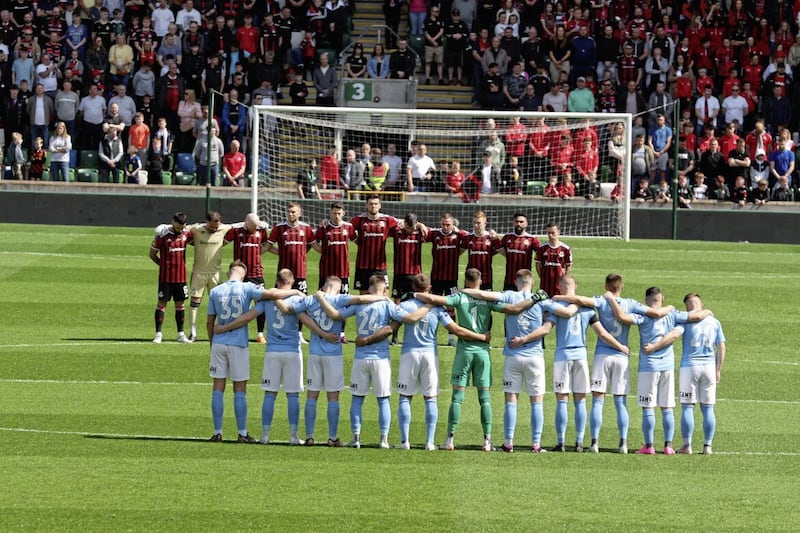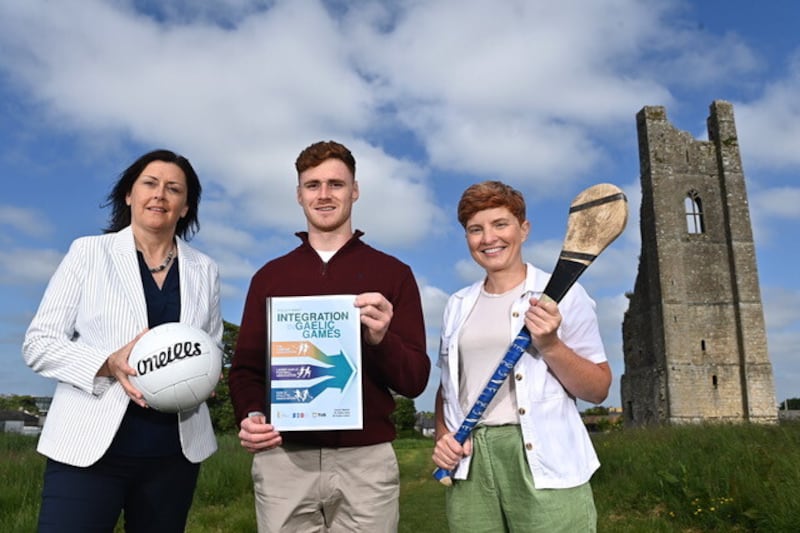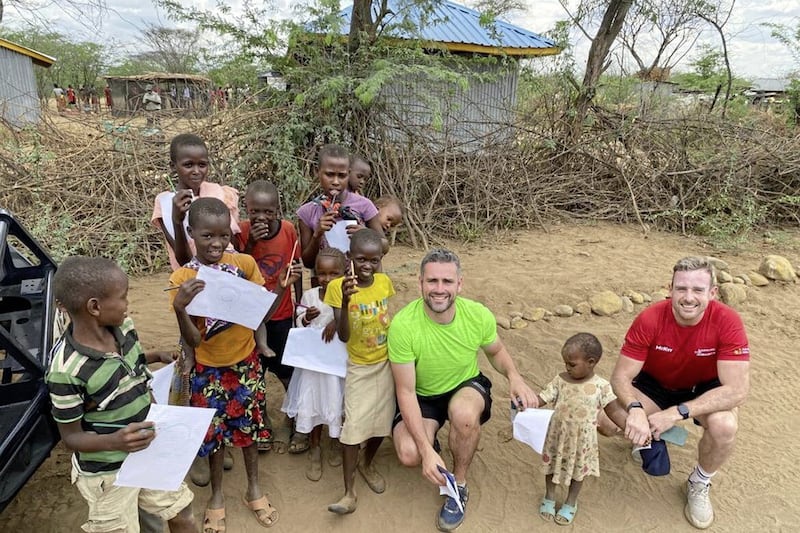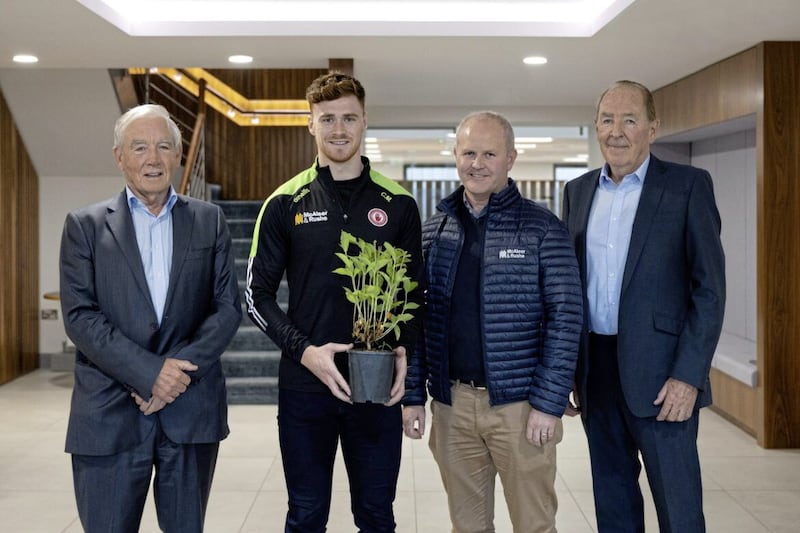A DAY late and a dollar short? It's never too late to start doing the right thing, insists Tyrone men's footballer Conor Meyler.
This article may appear after International Women's Day, but the Omagh man is determined to stand up for gender equality, in sport and in life.
Meyler knows he'll be mocked and ridiculed by some, due to "the culture in male sport", but he insists that's a price worth paying to improve the lot of women:
"I've had fellas, because I'm a lot more vocal on the likes of Twitter, trying to promote things, speaking up a bit more, I get the backlash from that: fellas saying 'What are you doing that for?!' or a bit of slagging - 'Look at you, you're a feminist now, trying to support the women's game'.
"That attitude is part of the problem, that's been set down for years.
"I've no halo over my head. There are times when I've seen issues and done nothing about it. Now you're trying to spark a change for younger generations, where younger lads in particular see the value of having women in leadership positions, coaches, managers, all those things. It will take time but we're starting the conversation now."
Meyler is literally learning about the subject, studying for a PhD at TUS [the Technical University of the Shannon]:
"I've just started, Sports Leadership and Gender. Aoife Lane, one of the founders of the Women's GPA, who has done a lot of good work for the ladies, she's my main supervisor, along with Katie Liston. I started to realise some of the issues involved.
"Once you start to delve into not just Irish sport but sport on general, some of the inequality is shocking. The more conversations I have with people like Aoife, Vikki Wall [Meath Ladies Football star], you start to hear about some of the issues they have had, because I haven't had those sort of experiences, it's hard to fathom that that sort of thing is going on. I think by having more conversations, awareness of these issues grows."
One of three contenders for 2021 Footballer of the Year, an accolade won by his Tyrone team-mate Kieran McGeary, Meyler hopes to use his recognisability to good effect:
"I'm in a position where I want to try to use my profile to be a positive role model for change.
"It does fall on me a bit, because I haven't gone anything to help promote the game [Ladies Football] then you're part of the problem, really. A lot of males are in the same position. It's a lack of awareness and a lack of education. Staying quiet is part of the problem.
"The Ashling Murphy murder got people talking: I talked to my girlfriend about it, we had conversations that we wouldn't have had normally. You're aware of such things but may don't want to acknowledge them - but the longer you let it sit then the problem continues.
"I want to make a positive impact. In terms of your values and morals, you know you're doing something good and positive."
Meyler agreed that many men simply don't understand the problems facing female athletes and need to have their eyes opened:
"100 per cent . It's about awareness: because it hasn't directly affected us [men] then we turn a blind eye to it, even though we maybe know it's not the right thing to do.
"I see myself now as a role model, have a positive influence in effecting change in whatever capacity I can."
There may need to be element of 'positive discrimination', with males having to accept not being first in line, in order to benefit women, but Meyler feels men should focus on the 'positive' aspect of such an approach:
"Absolutely. We've been spoilt, really. I've had access to gyms, food after training every night. If you have to give a bit back to get fairness, absolutely.
"It's about starting that process. There'll be fine-tuning and tweaking of every county board and committee as well, bringing in quotas and 'gender equal' policies in interview and selection processes, that's a start.
"The fellas in the GPA have seen that by having a different voice and seeing from a different perspectives, it's a huge eye-opener, opening up other opportunities and avenues that we didn't even realise before."
Having used the word 'spoilt', Meyler insists that males within the GAA aren't in the lap of luxury by any means:
"This [integration of the GAA with Ladies Football and Camogie] may open up more opportunities with sponsors.
"We're amateur athletes, we're getting very little as it is. We have had our own issues before, fighting for our own expenses, getting food, mileage, all the rest.
"Why I play the game is the same as the ladies - you play it because you love the game. You accept some sub-standard things sometimes. Sport in general is growing, opportunities and funding available are growing. I can't see why both can't work in tandem.
"You're not asking for money as such, it's facilities. That's the biggest issue. We have pitches in Garvaghey, it doesn't mean that we [men] are going to miss out.
"If they're putting on food after training, it's not going to cost an awful lot extra if the ladies are training the same night to have food on for them as well. The extra financial cost would be quite low compared to what you would gain, the returns, the benefits."
Meyler's own interest in the subject of gender equality has been motivated by his involvement in the Gaelic Players Association:
"It started from going the Jim Madden [Leadership] programme within the GPA, which is a top class programme. I got the opportunity then to speak to female athletes. I remember talking to a retired inter-county camogie player and a current inter-county female player.
"We were talking about our weeks, about leadership, and we realised the stories didn't match up - what was happening for me and what was happening for them.
"That started to spark my own journey of self-awareness, what do I value as a person?
"Programmes like that pull that out, you have to start speaking about it a bit more. It was a great starting point."
His is a journey of constant learning, and everyone within Gaelic games can go along the same road of progress:
"I did a Masters in Education at UCD as well, so again you're expanding your horizons, you're out of your bubble of Omagh, Tyrone, and Belfast. You go down to Dublin and see things a bit differently, see how other sports are doing it.
"I know the IRFU, FAI, Athletics Ireland, Olympic Federation, when I looked into those organisations, they have moved towards equality, but they haven't got it just right yet, they all have their own problems. The more I look into those things, the better understanding I get."








